Indonesia: August 17, 1945
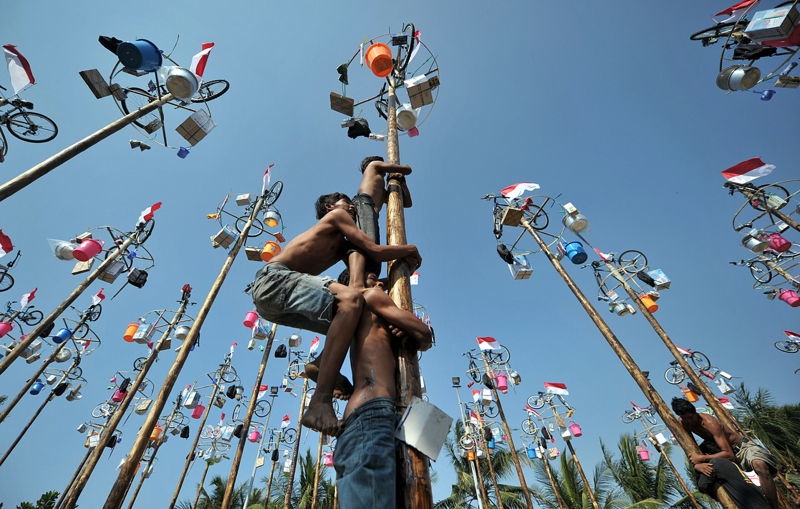
Source: The Boston Globe
Often dubbed a turning point in modern Indonesian history, the Indonesian National Revolution required several political and communal upheavals plus two major diplomatic interventions to gain independence. While the Dutch maintained control of small islands, their force proved no match for independence-hungry citizens of Indonesia’s countryside and villages. Coupled with international diplomacy, indigenous perseverance and subsequent international support, the Dutch lost their cause to re-establish their colony and by December 27, 1949 sovereignty to Indonesia had been formally transferred.
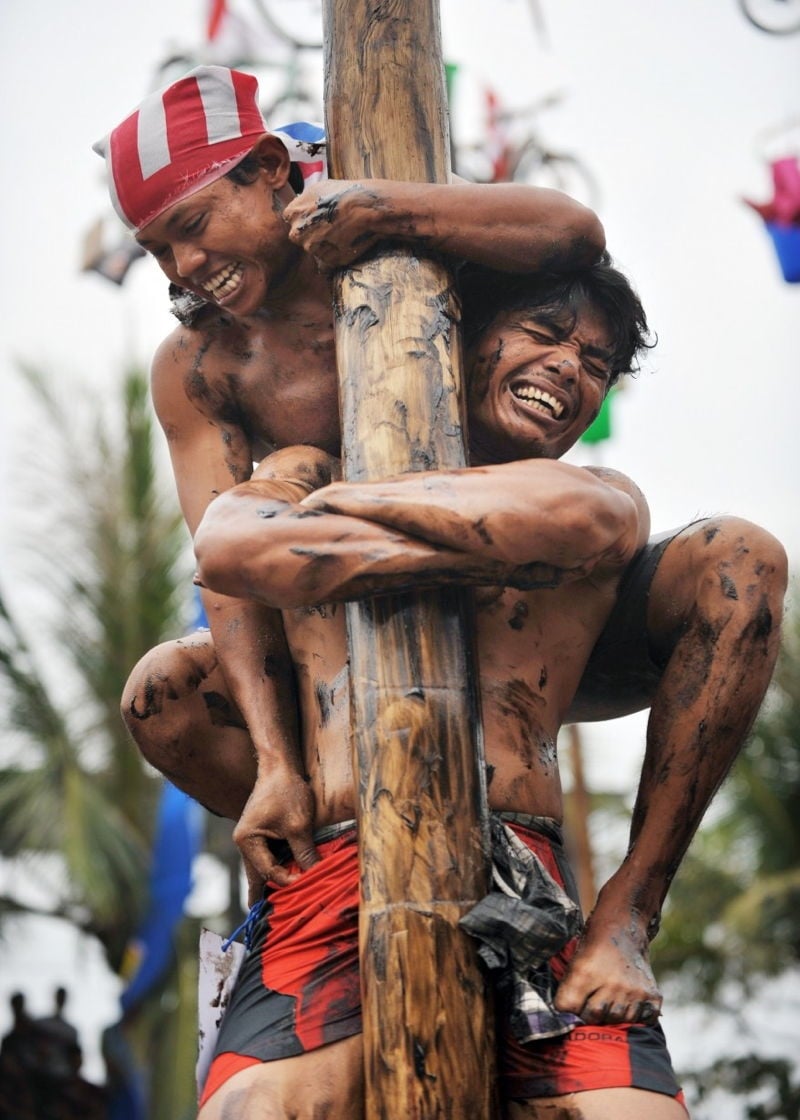
Source: VOA News
That prize was hardly without struggle, though; estimates of Indonesian deaths range from 45,000 to 100,000 and for civilian casualties, estimates hover between 25,000 and 100,000 deaths. Conversely, it’s estimated that only 5,000 Dutch soldiers met their maker during the turmoil. The revolutionary schism gave impetus for communism, a democratic drift toward Islam, militant nationalism, and an Indonesian artistic renaissance while also seeing the end of rigid racial and social categorizations. The revolution did not, however, see marked increase in economic or political conditions for its poverty-ridden peasant majority.
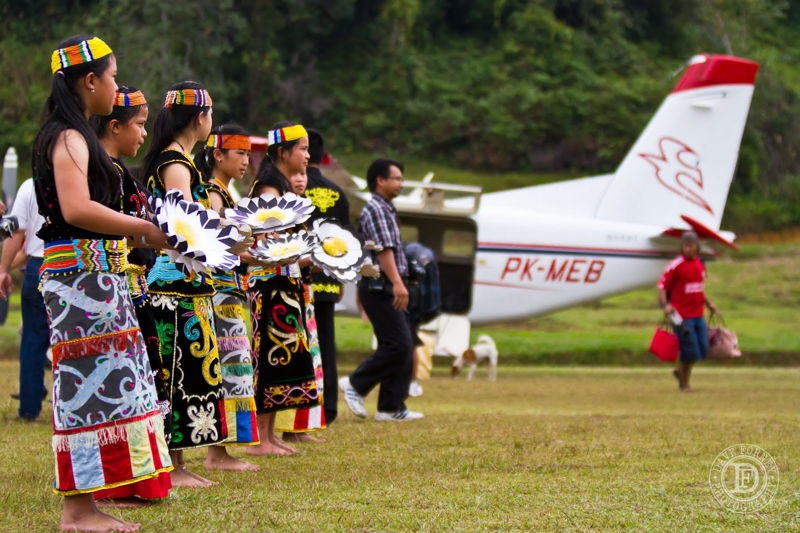
Source: Blogspot
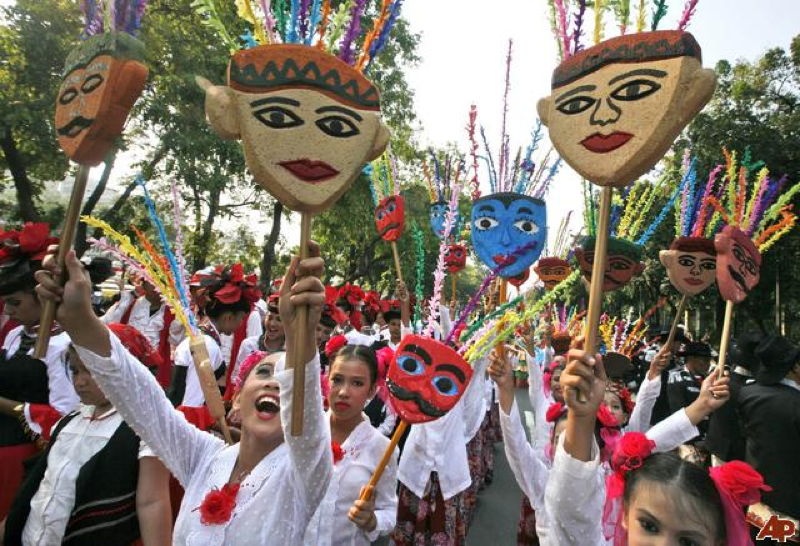
Source: News Hopper
Pakistan: August 14, 1947
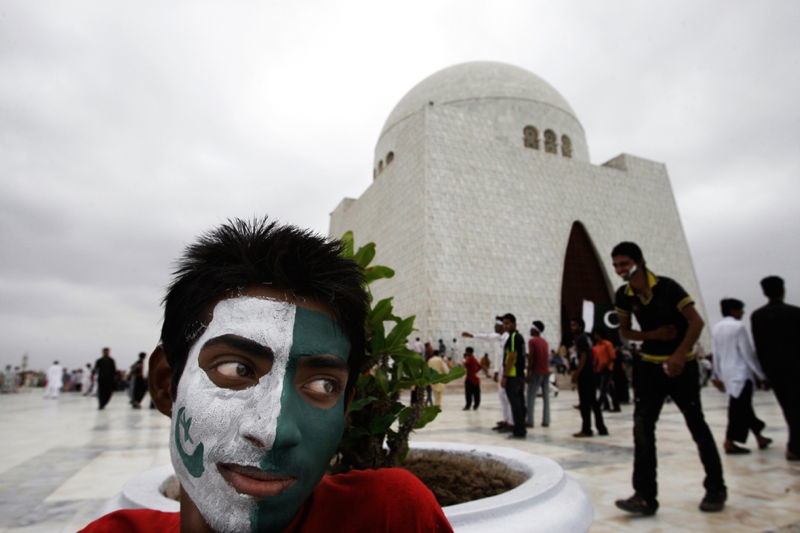
Source: The Boston Globe
Observed every year on August 14, Pakistan achieved its independence through the Pakistan Movement, which fought against the British Raj and the Indian Congress in favor of the creation of an independent Muslim state.
As India vied for self-rule, so too did Muslim League leader Allama Iqbal advocate for a separate state called Pakistan. As Indian single-state independence movements gained traction in the 1940s, Muslim nationalist groups intensified their two-state efforts as well, and by 1947 the Indian Independence Act passed the UK Parliament and partitioned Pakistan and India.
While many rejoiced their newfound independence, conflict was still the name of the game as communal riots based on the newly-drawn borders rocked the region for some time. Today, Pakistan commemorates its independence with special prayers, gun salutes and decadent green and white (the nation’s official colors) parades.
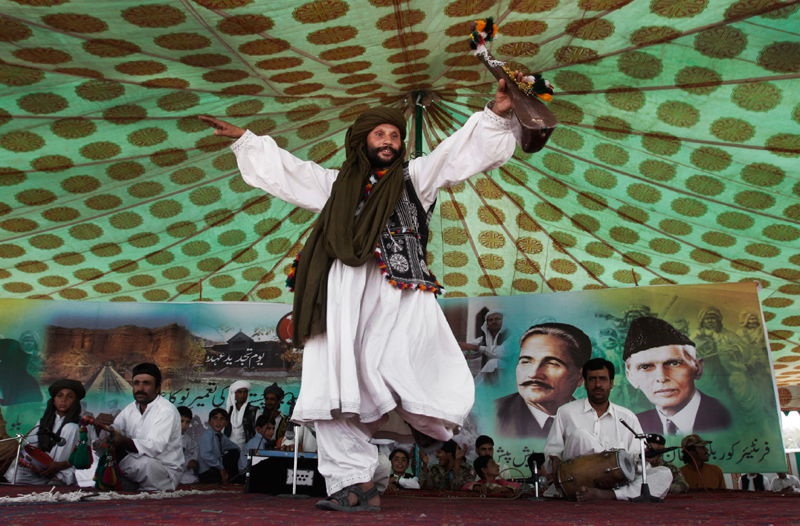
Source: The Boston Globe
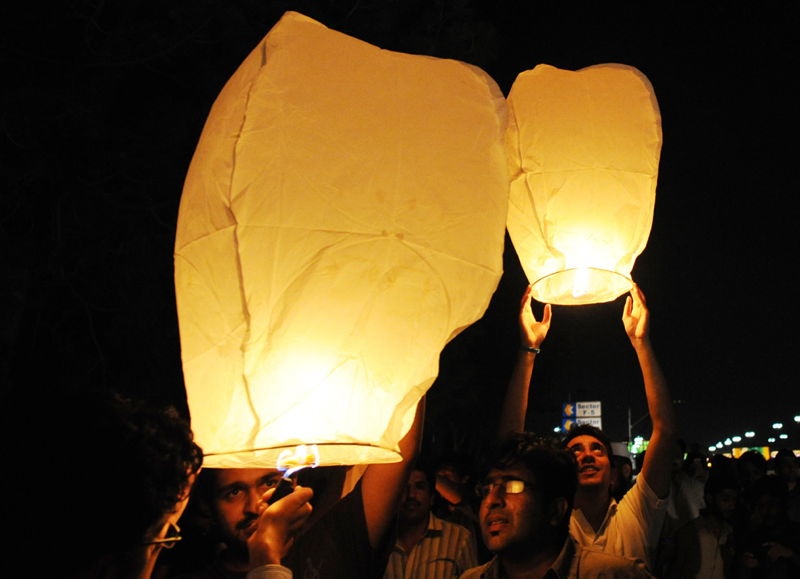
Source: The Boston Globe
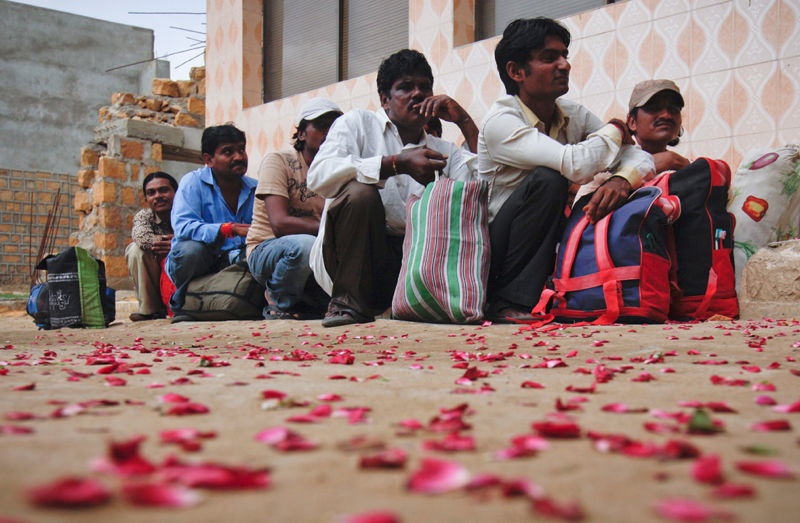
Source: The Boston Globe
South Korea: August 15, 1945
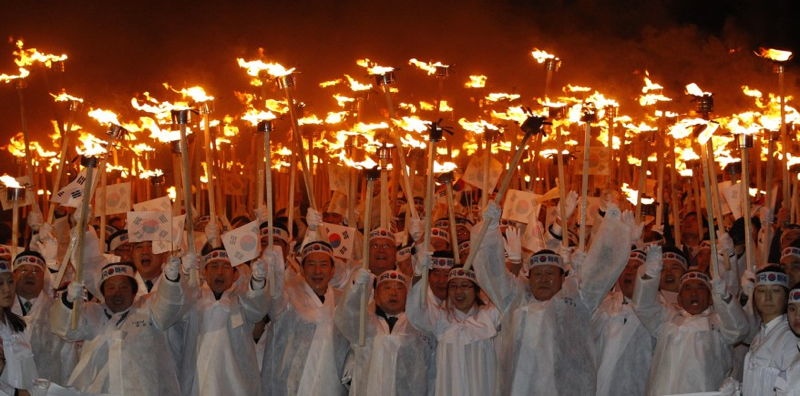
Source: VOA News
After years of Japanese rule, Korean resistance to repressive Empire occupation culminated on March 1st, 1919, when activists convened in Seoul and read the Fourteen Points-inspired Korean Declaration of Independence to the public.
Japanese police attempted to suppress the subsequent procession, and when it became evident that police force would prove unsuccessful against the Korean population, Japanese military forces were soon brought into the equation and obscene amounts of violence on behalf of the Japanese followed. Upwards of 7,000 Koreans were slaughtered, nearly 16,000 were wounded, and many of the over-46,000 arrested faced torture or death without trial or due process.
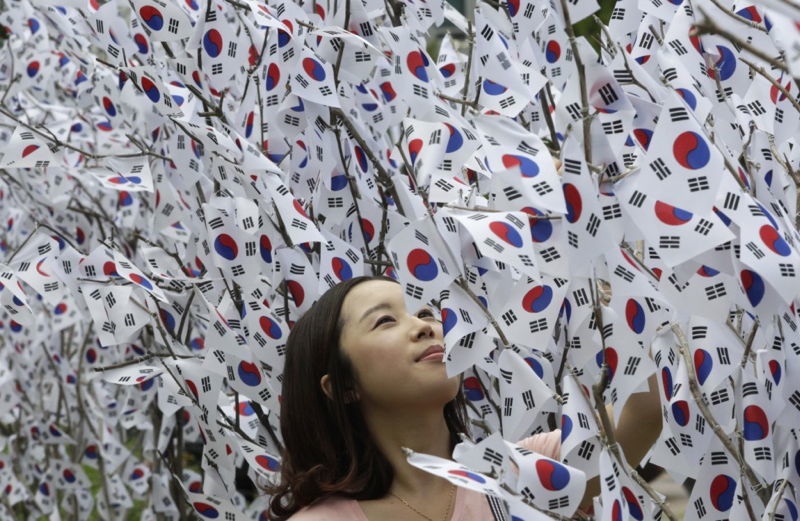
Source: VOA News
Many Koreans fled to China, where their government-in-exile found much support with the Chinese Nationalist Government. A handful of devastating wars later, South Korea celebrated “Gwangbokjeol” or “Restoration of Light Day” for the first time on August 15, 1945, the day on which Japan surrendered to Allied forces, effectively ending World War II and liberating Korea from colonial rule. On the same day three years later, the South Korean government was created and Syngman Rhee became the nation’s first president.
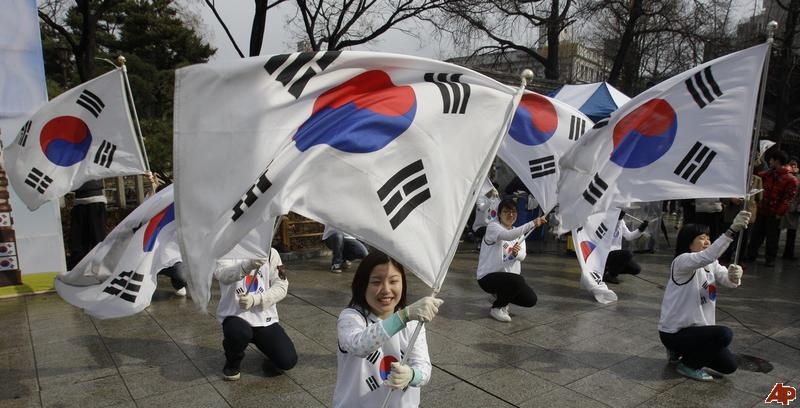
Source: Blogspot
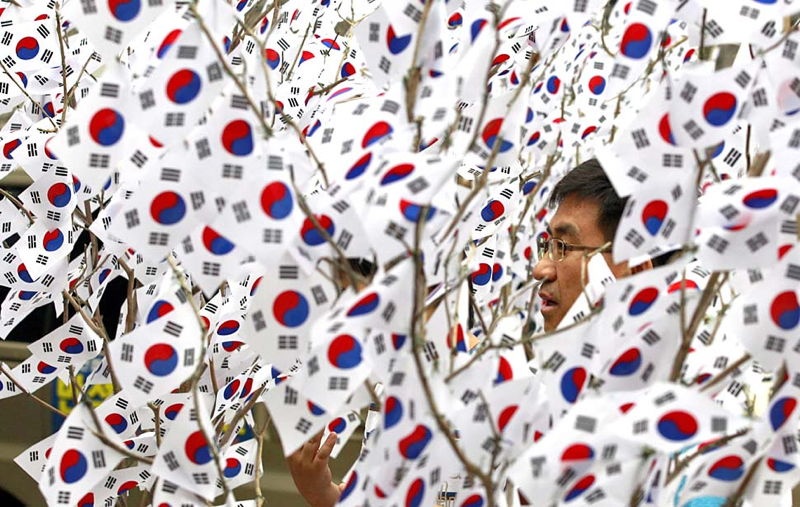
Source: The LA Times





